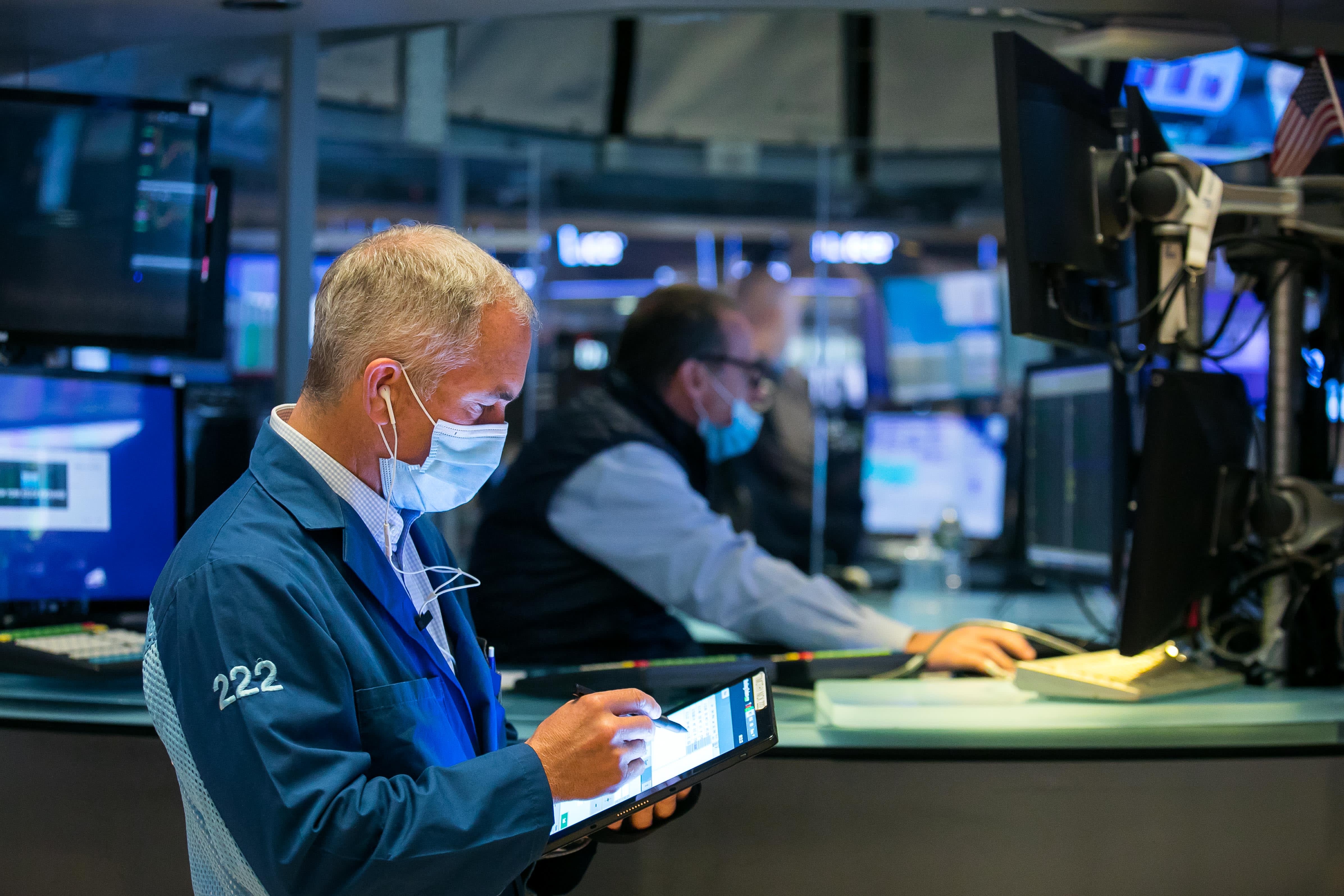Dow Jones Industrial average futures fell slightly in overnight trading on Sunday as a rising number of Covid-19 cases continued to weigh on markets.
Futures contracts tied to the Dow fell 66 points, or 0.2%. The move indicated an opening decline of about 50 points. S&P 500 futures fell 0.1%, while Nasdaq 100 futures were barely changed.
“Stocks this week will trade on lockdown concerns and rising cases, but could see a boost into early December as the optimism around a near term, stopgap stimulus package grows,” said Shannon Saccocia, Chief Investment Officer at Boston Private. “Overall, the push and pull between tech stocks and cyclicals will likely continue through the next couple of weeks, and we could see some tough days as economic data is released that reflects the deterioration in consumer spending we are currently experiencing.”
All three major averages finished Friday’s session lower, while the Dow and S&P 500 also posted a loss for the week, falling 0.73% and 0.77%, respectively, for their first negative week in three. The Nasdaq Composite managed to eke out a 0.22% gain for the week, marking its second straight week of gains.
The move lower came as Covid-19 cases continue to rise, with the U.S. reporting a record-high spike of more than 195,500 new cases on Friday. Public health officials have warned that Thanksgiving celebrations on Thursday could further exacerbate the outbreak.
Friday’s jump brings the seven-day average of new cases to over 167,600, an increase of nearly 20% compared with a week ago, according to a CNBC analysis of data compiled by Johns Hopkins University. The seven-day average of new cases are up by at least 5% week over week in 43 states and the District of Columbia, Hopkins data shows.
The spike has led to coronavirus-related restrictions in some places. On Thursday California Gov. Gavin Newsom instituted a “limited Stay at Home Order” on a majority of the state’s residents, requiring nonessential work and gatherings to cease between 10 p.m. and 5 a.m. The move followed New York City Mayor Bill de Blasio’s decision to close the nation’s largest school system amid a jump in cases
Such measures will “likely deliver negative growth” in the first quarter, JPMorgan economists said Friday. The firm downgraded its first-quarter GDP outlook to a 1% contraction, the first on Wall Street to forecast negative GDP for the first quarter of 2021.
A disagreement between the Treasury Department and the Federal Reserve over the continuation of funding for some of the emergency programs instituted amid the Covid-19 outbreak also weighed on markets last week.
Sentiment was kept in check, however, by positive developments over the treatment and prevention of Covid-19. On Saturday The Food and Drug Administration on Saturday granted an emergency use authorization for Regeneron’s Covid-19 antibody treatment, the experimental therapy given to President Donald Trump. Meanwhile, on Friday Pfizer and BioNTech applied for an emergency use authorization from the FDA for their coronavirus vaccine, which has a 95% efficacy rate.
Subscribe to CNBC PRO for exclusive insights and analysis, and live business day programming from around the world.
